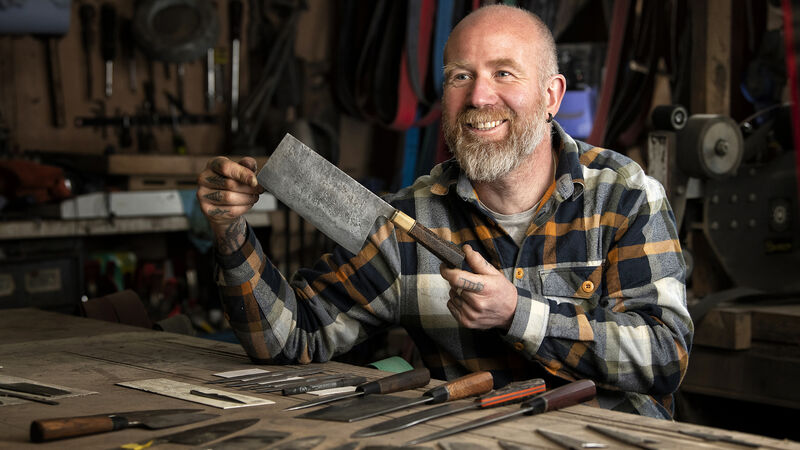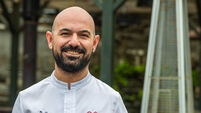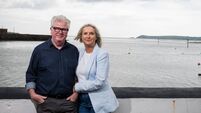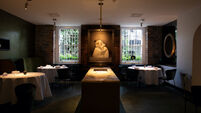Meet Sam Gleeson, the man carving a reputation as Ireland's top knifemaker

'I grew up with tools and bits of metals.' Picture: Michael Dillon
Knives are one of the very first and most essential of tools, and despite the ever-present threat of a sharp blade, one of the most civilising that humankind has ever created. Beginning with those made from flint, 2.5m years ago, the knife enabled our ancestors to protect themselves from mortal danger, animal and human; to kill and butcher protein-rich prey; to skin and cut hides for clothing and blankets; to cut materials to build shelters and other tools. A prehistoric time traveller arriving in the 21st-century world would at least still recognise a knife.
Mind you, should that knife be one of Sam Gleeson’s intricately worked and exquisite hand-forged blades, it would serve as a first lesson on the
concept of consumer envy. Sam’s talents were recently recognised with a prestigious 2021 RDS Craft Award, including a €10,000 bursary — the largest annual prize for Irish craft makers.








